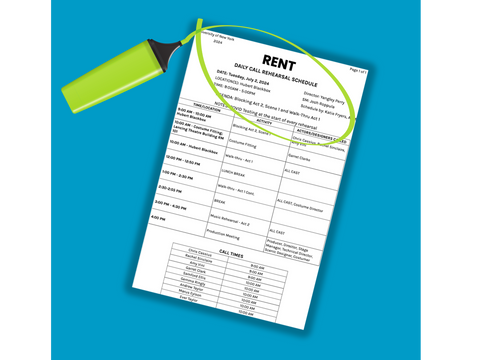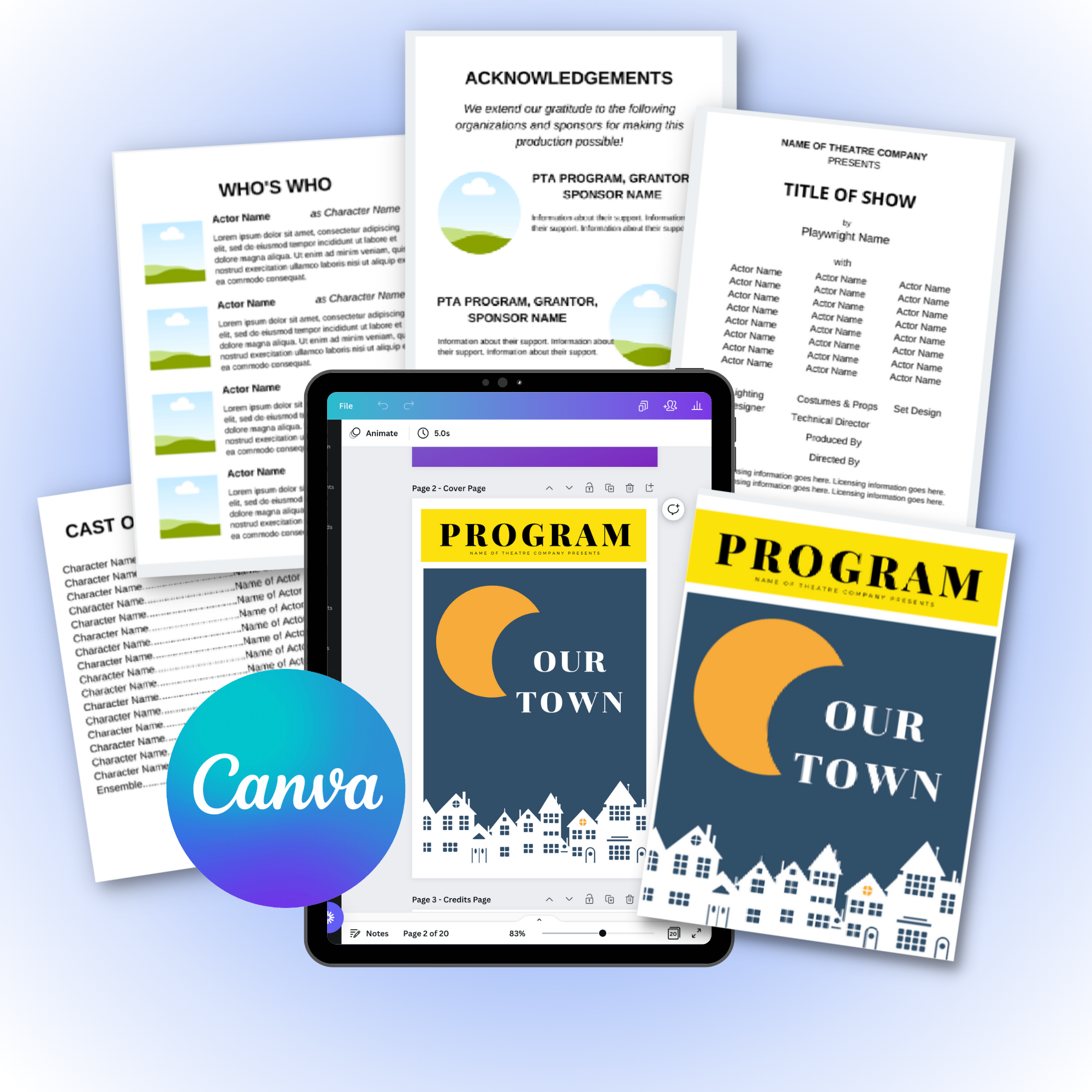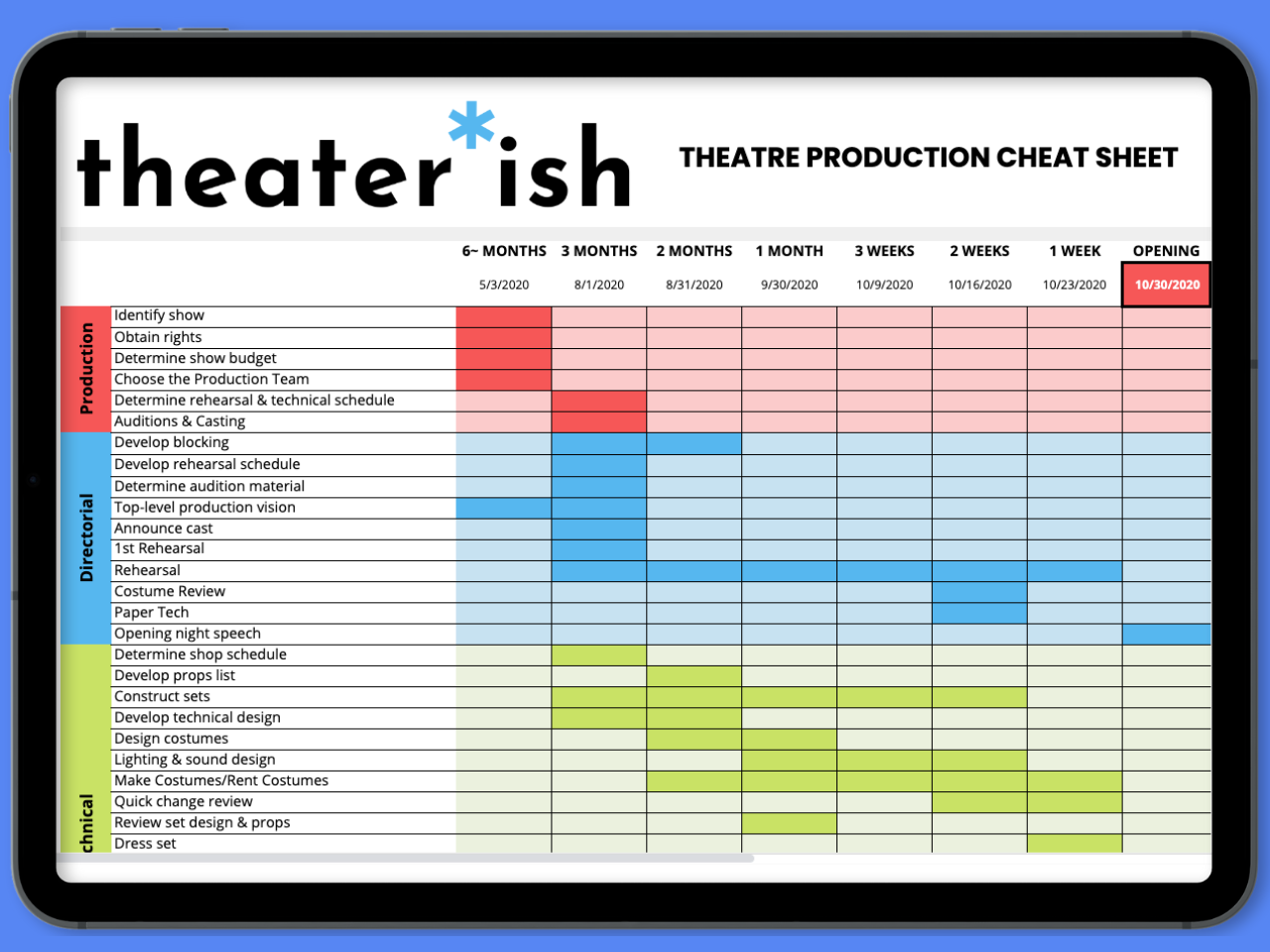Theatre Template: Daily Rehearsal Schedule
Are you ready to take your rehearsals to the next level?
One key tool that can help keep everyone on track and ensure smooth sailing is a well-prepared Daily Rehearsal Schedule, known in the biz as the Daily Call Sheet.

The Daily Rehearsal Schedule or "Daily Call Sheet" keeps your team on-track and on-time with exactly what will be covered in rehearsal, where it will take place, and who is called at what time to be on stage.
Keep your cast organized by providing a monthly, weekly, and daily rehearsal schedule. This Daily Rehearsal Schedule drills down into exactly who is called at what time so actors can maximize their rehearsal time.
Production Phase: Production, Rehearsal
How to use: The Stage Manager provides a Daily Call Sheet Rehearsal Schedule to the cast after approval by the director. They need to review the upcoming Daily Call Sheets on a daily basis to ensure no changes have been made and prepare to rehearse the scenes identified.
Actors can refer to their specific call time in the section placed below the schedule so they know exactly what time they need to be ready and on stage.
Whether you're a seasoned pro, working in educational theatre or just getting started, here's a friendly guide on how to create one for your next rehearsal!
Here's exactly what you should include in your Daily Call Sheet:
Date and Production Information
- Start by indicating the date of the rehearsal day at the top of the call sheet.
- Include the name of the production, along with any relevant identifying information (e.g., production code, scene number).
Call Times:
- List the call times for each member of the cast and crew. This includes the time they are expected to arrive at the rehearsal venue or call room.
- Differentiate between call times for actors, directors, stage managers, technicians, and any other personnel involved in the rehearsal.
Rehearsal Schedule:
- Outline the schedule for the rehearsal day, including the start and end times of each rehearsal block or session.
- Specify the specific scenes, musical numbers, or production elements that will be worked on during each rehearsal block.
- Include any scheduled breaks or meal times to ensure that everyone knows when they have downtime.
Location and Directions:
- Provide the location of the rehearsal venue, including the address and any additional directions or instructions for getting there.
- Include information about parking, public transportation options, and any special access or entry instructions.
Scene Breakdown:
- List the scenes or sequences that will be rehearsed during the day, along with any specific objectives or focus points for each scene.
- Include information about any props, costumes, or set pieces that will be used during the rehearsal.
Special Instructions and Notes:
- Include any special instructions or notes for the cast and crew, such as reminders about upcoming deadlines, important announcements, or changes to the schedule.
- Communicate any safety protocols, emergency procedures, or specific rules and regulations that need to be followed during rehearsals.
Include Key Contact Information:
- Provide contact information for key personnel involved in the production, such as the director, stage manager, production manager, and technical director.
- Include phone numbers, email addresses, and any other relevant contact details to facilitate communication and coordination.
Review and Distribute
- Review the current and upcoming call sheets carefully to ensure accuracy and completeness.
- Distribute the call sheet to the cast and crew via email, print copies, or through a digital call board.
- Encourage recipients to review the call sheet and reach out with any questions.

Showtime for Stage Managers>>>The Daily Call Sheet templates plus 30 more templates including Monthly & Weekly Rehearsal Calendars are included in this bundle! |




